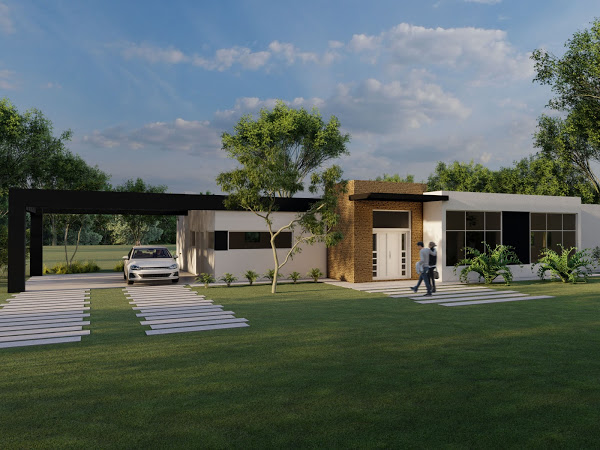
The Festival Costumbrista Patagónico in Rawson, Chubut, invites travelers to experience authentic Patagonian culture through gaucho traditions, music, and local crafts. This accessible festival balances outdoor celebration with practical amenities, making it a must-visit for culture lovers and adventure seekers alike.
Dress in Layers to Combat Patagonian Winds
Chubut’s open plains bring sudden gusts that can chill you quickly, especially near the coast. Opt for windproof jackets and wear breathable base layers to stay comfortable throughout the day.
Bring Your Own Water Supply
Although some vendors sell drinks, water stations are limited, and the dry steppe climate demands constant hydration, especially during the sunny afternoon events.
Wear Sturdy, Closed-Toe Footwear
Festival grounds are flat but dusty, with horse hooves stirring up dirt. Closed shoes protect your feet and provide better traction for milling through crowds and artisan areas.
Plan for Early Arrival
Arrive in the morning to experience cooler, quieter moments and to secure seating near demonstration arenas before the midday rush.
Experience the Festival Costumbrista Patagónico: Rawson’s Celebration of Tradition and Adventure
Situated in Rawson, the capital of Chubut Province, the Festival Costumbrista Patagónico offers more than a window into Patagonian culture—it presents a dynamic engagement with a fiercely authentic lifestyle. Each year, this festival draws visitors eager to witness gauchos, traditional music, local artisans, and regional cuisine, all set against the raw backdrop of Argentine Patagonia’s expansive plains.
The Festival centers around the Peninsula Valdés area but finds its heart in Rawson, where you’ll encounter horseman displays that challenge the wind and sky with skillful precision. The event spans several days, typically in mid-March, making the climate mild but occasionally temperamental. Expect sunny stretches punctuated by brisk breezes that push through the crowd, invigorating the senses.
From the practical side, the Festival Costumbrista Patagónico is a user-friendly adventure. Rawson offers approachable logistics with its accessible urban amenities, yet the festival grounds open directly to the natural world—the Patagonian steppe molds the atmosphere, daring you to connect with the place that shapes these customs.
The festival terrain is mostly flat, with open spaces designed for horseback events and artisan markets. Navigation requires little technical skill, but timing your attendance is crucial. Early mornings bring a fresh sharpness to the air and quieter moments before the crowds swell. Local vendors provide regional wines and hearty meals—licenses designed to keep you fueled as you move through celebrations punctuated by folkloric dance and storytelling.
One practical tip: wear layers and sturdy footwear. The Patagonian wind can turn from playful to demanding, and dust kicked up from horse hooves reminds you why closed shoes matter. Hydration stations are limited, so bring your own water bottle.
Engaging with this festival means entering into a dialogue with a culture still fiercely itself, where tradition isn’t preserved behind glass but actively performed in sun, wind, and community. The natural surroundings are constant actors—the sea breezes from the nearby Atlantic nudge your jacket, and the plains stretch endlessly, inviting reflection between events.
Whether you’re seeking cultural immersion or an easy step into Patagonian outdoor life, the Festival Costumbrista Patagónico weighs in as both festive celebration and steady exploration. It’s an accessible yet potent way to feel the pulse of Patagonia firsthand, with practical comforts of city access and the raw edge of open land always a step away.
Nearby Trips
All Adventures
Boat Charters
Water Activities
Adventures near Rawson, Chubut
Discover the unique and memorable adventures that make Rawson, Chubut special.
Frequently Asked Questions
When is the Festival Costumbrista Patagónico held?
The festival usually takes place in mid-March, aligning with the late summer season in Patagonia, which provides comfortable weather conditions and long daylight hours.
Are there accommodations nearby for festival attendees?
Yes, Rawson has a variety of hotels, guesthouses, and rental options that are conveniently located for easy access to the festival grounds and city amenities.
What kind of cultural activities can I expect at the festival?
Visitors can experience gaucho horse-riding demonstrations, traditional folk music and dance performances, artisan markets featuring local crafts, and regional Patagonian food tasting.
Is the festival family-friendly?
Absolutely, the festival offers a welcoming environment for all ages with open spaces for children to explore and many activities that introduce younger visitors to Patagonian culture.
Are there any environmental concerns visitors should keep in mind?
Respect for the natural landscape is emphasized; attendees are encouraged to minimize waste and avoid disturbing the native flora and fauna sensitive to the steppe environment.
What wildlife might I encounter around Rawson during the festival?
While the festival itself is focused on cultural events, the nearby region is home to species such as guanacos, rheas, and a variety of birds that may be spotted in surrounding open spaces.
Recommended Gear
Windbreaker Jacket
Protects against fierce Patagonian gusts while remaining lightweight enough for variable temperatures.
Reusable Water Bottle
Allows for proper hydration across long festival hours where water stations are sparse.
Closed-Toe Hiking Shoes
Provides foot protection against dust and uneven festival terrain, ensuring comfort during long periods of standing.
Wide-Brimmed Hat or Cap
Offers sun protection during outdoor daytime events while allowing airflow to your head.
Local Insights
Hidden Gems
- "Mirador Punta Arco, a lesser-known viewpoint offering panoramic views of the coastline and festival grounds from a quiet vantage point."
- "Small artisan workshops in Rawson where you can see traditional leather-working techniques up close."
Wildlife
- "Maguari stork"
- "Patagonian Mara"
- "Chimango caracara"
History
"The festival celebrates the enduring customs of the Patagonian gauchos—horsemen who have influenced regional culture since the 19th century. Their traditions in horsemanship, cattle herding, and music remain integral to the community identity."
